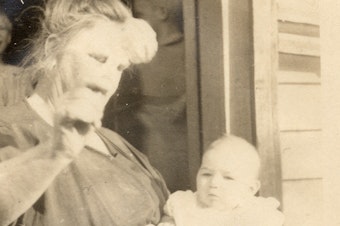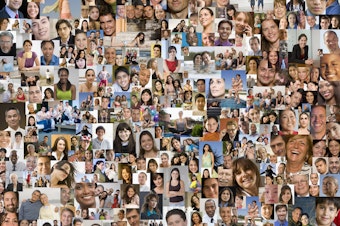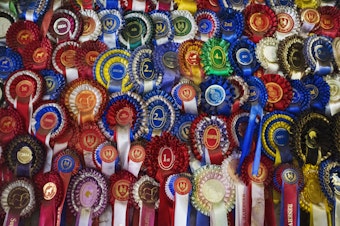Jennifer Schmidt
Stories
-

Whose Utopia? How Science Used The Bodies Of People Deemed 'Less Than'
There is a long legacy of leaders exploiting the bodies of vulnerable people in the name of science. This week, the history of eugenics and medical experimentation on enslaved people in the U.S.
-

The Fox And The Hedgehog: A Story of Triumphs and Tragedy
The Greek poet Archilochus wrote that "the fox knows many things, but the hedgehog knows one big thing." This week, we'll use the metaphor of the fox and the hedgehog as a way to understand the differences between tacticians and big-picture thinkers. We'll explore the story of a pioneering surgeon whose hedgehog tendencies led him to great triumphs, and a heartbreaking tragedy. This episode first aired in May 2017.
-

Life, Death And The Lazarus Drug: Confronting America's Opioid Crisis
More than 70,000 people died of drug overdoses in 2017 — many of them from heroin and other opioids. One of the most widely-used tools to confront this crisis is a drug called naloxone. It can reverse an opioid overdose within seconds, and has been hailed by first responders and public health researchers. But in 2018, two economists released a study that suggested naloxone might be leading some users to engage in riskier behavior — and causing more deaths than it saves. This week, we talk with researchers, drug users, and families about the mental calculus of opioid use, and why there's still so much we're struggling to understand about addiction. This episode originally aired in October 2018.
-

People Like Us: How Our Identities Shape Health And Educational Success
Generations of Americans have struggled against segregation. Most of us believe in the ideal of a colorblind society. But what happens when that ideal come up against research that finds colorblindness sometimes leads to worse outcomes?
-

Some People Are Great At Recognizing Faces. Others...Not So Much
It happens to all of us: someone recognizes you on the street, calls you by name, and says hello. You, meanwhile, have no idea who that person is. Researchers say this struggle to read other faces is common. This week on Hidden Brain, we revisit a favorite 2016 episode about "super-recognizers" and the rest of us.
-

Where Does Religion Come From? One Researcher Points To 'Cultural' Evolution
If you've taken part in a religious service, have you ever stopped to think about how it all came to be? How did people become believers? Where did the rituals come from? And what purpose does it all serve? This week, we bring you a July 2018 episode with social psychologist Azim Shariff. He argues that we should consider religion from a Darwinian perspective, as an innovation that helped human societies to thrive and flourish.
-

What Can A Personality Test Tell Us About Who We Are?
The desire to find our tribe is universal. We like to know who we are and where we belong. This fascination has led to a thriving industry built on the marketing and sale of personality tests. These tests offer individuals – and, increasingly, employers – quick and easy insights that can be used to make some of life's biggest decisions. But most fail to stand up to scientific scrutiny. This week, we revisit our 2017 episode about the world of personality testing, and explore the many different ways we assess personality and potential – from the Chinese zodiac to Harry Potter houses to the Myers-Briggs test.
-

Radically Normal: How Gay Rights Activists Changed The Minds Of Their Opponents
For generations, living openly as a gay person in the United States was difficult, and often dangerous. But there's been a dramatic change in public attitudes toward gay people. This week, we explore one of the most striking transformations of public attitude ever recorded. And we consider whether the strategies used by gay rights activists hold lessons for other groups seeking change.
-

Love, Sex, And Robots
From stone statues to silicone works of art, we have long sought solace and sex from inanimate objects. Time and technology have perfected the artificial lover: today we have life-size silicone love dolls so finely crafted they feel like works of art. Now, with the help of robotics and artificial intelligence, these dolls are becoming even more like humans. This week we talk with researcher Kate Devlin about the history of the artificial lover, and consider what love and sex look like in the age of robots.
-

Better Than Cash: How Awards Can Shape Our Behavior
Our modern world is saturated with awards. From elementary school classrooms to Hollywood to the hallways of academia, there's no shortage of prizes — and people who covet them. Yet we rarely stop to ask, do they work? We pose that question to economist Bruno Frey, who argues that awards can have a powerful, positive effect on our behavior — but only if they're designed well.